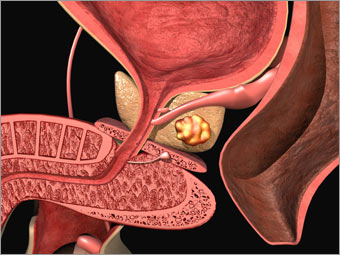One in six men eventually develop prostate cancer. But many of those cases occur late in life, and men diagnosed after age 80 aren't as likely to die of the disease - cancer detected at that age tends to be slow-growing.
The test to get:
Men over 50 should have a digital rectal exam every year.
What you can skip:
There's increasing controversy over the value of the PSA, or prostate-specific antigen blood test, because results aren't always reliable.
| With so many alternatives to conventional medicine, how do you know what works and what's just old-fashioned snake oil? (more) Politicians are talking health reform again, and they have three big ideas for how to get there. Each one would make a big difference in your family's bottom line. (more) When it comes to alternative treatments, the first rule is do yourself no harm. (more) |

